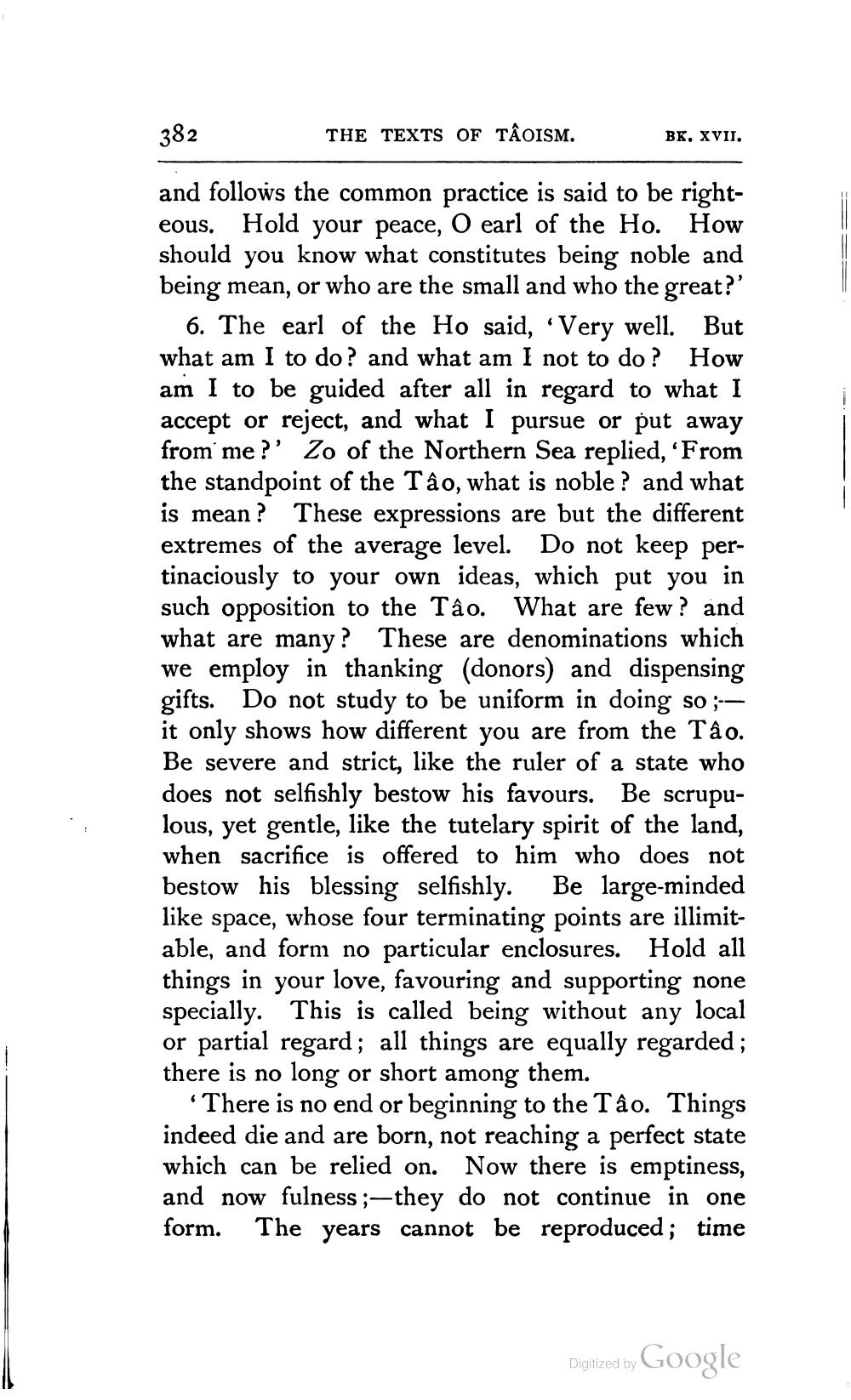________________
382
eous.
and follows the common practice is said to be rightHold your peace, O earl of the Ho. How should you know what constitutes being noble and being mean, or who are the small and who the great?'
THE TEXTS OF TAOISM.
BK. XVII.
6. The earl of the Ho said, 'Very well. But what am I to do? and what am I not to do? How am I to be guided after all in regard to what accept or reject, and what I pursue or put away from me?' Zo of the Northern Sea replied, 'From the standpoint of the Tâo, what is noble? and what is mean? These expressions are but the different extremes of the average level. Do not keep pertinaciously to your own ideas, which put you in such opposition to the Tâo. What are few? and what are many? These are denominations which we employ in thanking (donors) and dispensing gifts. Do not study to be uniform in doing so ;-- it only shows how different you are from the Tâo. Be severe and strict, like the ruler of a state who does not selfishly bestow his favours. Be scrupulous, yet gentle, like the tutelary spirit of the land, when sacrifice is offered to him who does not
bestow his blessing selfishly. Be large-minded like space, whose four terminating points are illimitable, and form no particular enclosures. Hold all things in your love, favouring and supporting none specially. This is called being without any local or partial regard; all things are equally regarded; there is no long or short among them.
'There is no end or beginning to the Tâo. Things indeed die and are born, not reaching a perfect state which can be relied on. Now there is emptiness, and now fulness; they do not continue in one form. The years cannot be reproduced; time
Digitized by Google




